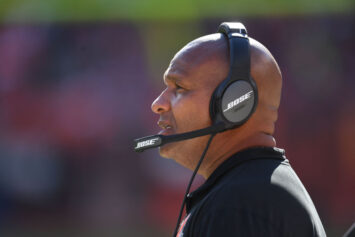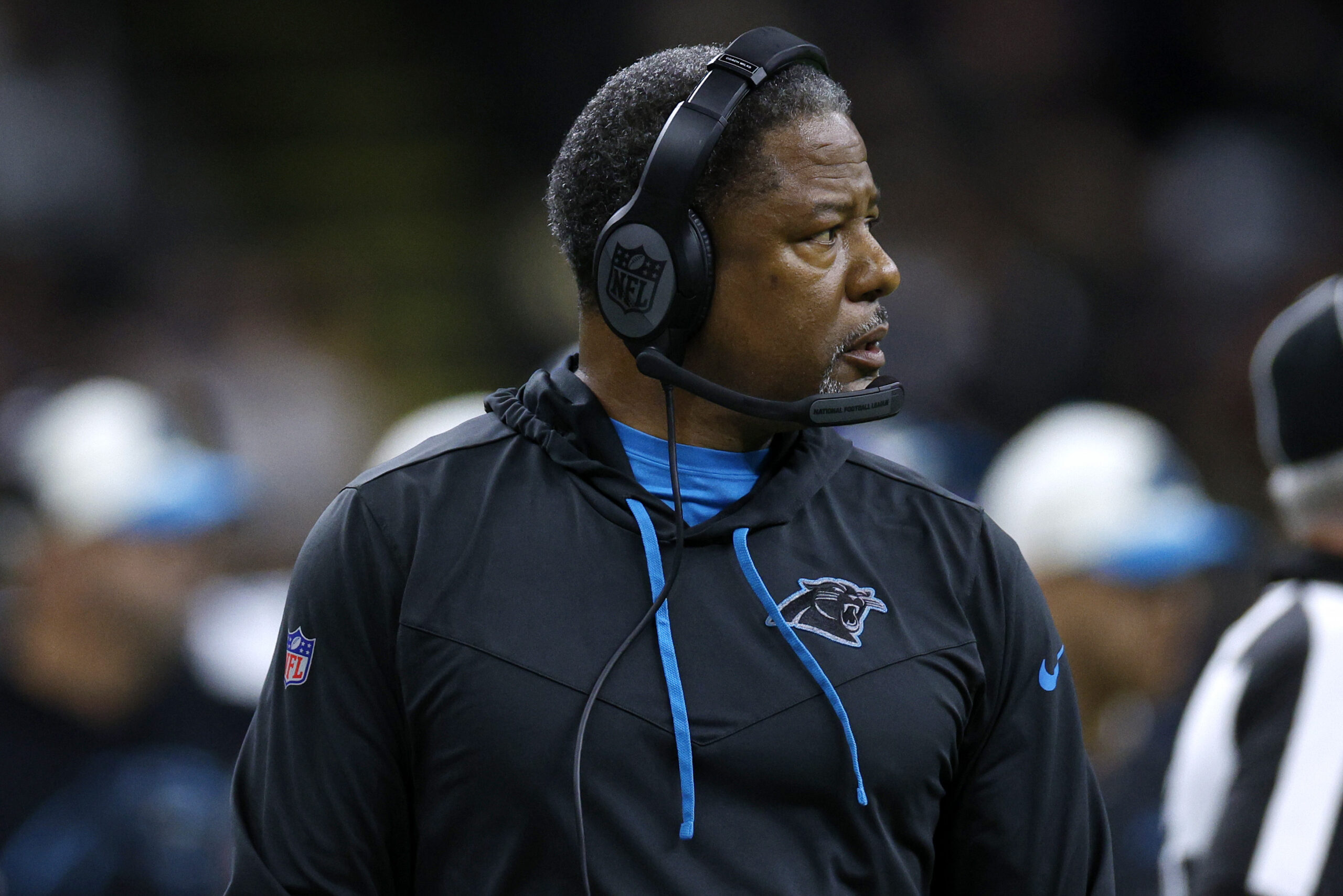Josh Gattis is getting a chance to enter the head coaching pipeline as an offensive coordinator, a rarity for Black men on the major college level.
Yesterday afternoon, the University of Michigan announced that Josh Gattis had been hired as the Wolverines’ next Offensive Coordinator.
Gattis is coming from his co-offensive coordinator post at Alabama where the Tide ranked sixth in offensive yards per game, second in yards per play and sixth in passing yards per game. Michigan, by contrast, was ranked 49th in yards per game, 42nd in yards per play and 79th in pass yards per game.
“The offense and passing games under Josh’s direction have achieved at a very high level throughout his coaching career,” said Michigan head coach Jim Harbaugh. “Josh will provide leadership to our offense while being a great mentor to our student-athletes and an outstanding addition to our coaching staff.”
At Alabama last year, Gattis, just 34 years old, was credited with mentoring All-American receiver Jerry Jeudy, the 2018 Biletnikoff Award winner, who caught 68 passes for 1,315 yards, an average of almost 20 yards per reception, and 14 touchdowns.
https://www.youtube.com/watch?v=ieIJ03wHEAM
He’s also been credited with assisting in the development of true freshman phenom Jaylen Waddle, along with overseeing an explosive Crimson Tide receivers unit that had four receivers and a tight end each surpass 500 receiving yards for the season.
Racial Stacking In College Coaching
This might seem like just another hire in the college coaching carousel, but it’s much bigger than that if you understand the conundrum of why so few Black head coaches are roaming the sidelines at top Division I football programs.
It’s no secret that college football has been guilty of relegating black coaches to lesser roles. You often hear that so-and-so is a “great recruiter”, but you rarely hear about their acumen when it comes to calling plays, cooking up effective offensive schemes or being able to effectively lead others, both on the field and in organizational meetings.
The stereotypical leanings are still there, that coordinators and head coaches require a greater degree of “intelligent thinking and decision-making”. And when long-held assumptions are de-coded, we all know what that means.
Because the racial stacking doesn’t simply begin at the coaching level. It’s something that Black players have long had to contend with on the field prior to even entering the coaching ranks.
For a quick reference, please refer back to the draft analysis of Lamar Jackson, with many “experts” suggesting that he switch to receiver. Or how about Cam Newton, who was derisively referred to as “Scam” Newton when he was coming out of Auburn after leading them to the national championship.
Newton posted one of the most impressive single-seasons ever for a college quarterback in 2010 en route to the Heisman Trophy and was the first SEC player to ever throw for 2,000 yards and rush for 1,000 in a single season.
Auburn beat six nationally-ranked teams to go 14-0, he was one of the most dynamic prospects to ever line up under center, and yet the man who would go on to become the 2015 NFL MVP had to deal with antiquated stereotypes that remain alive and well.
When a proven winner like David Shaw at Stanford or James Franklin at Penn State succeeds, it’s viewed as an outlier.
But when a mediocre college coach like Kliff Kingsbury gets an NFL head coaching gig and is being hailed as the next incarnation of Bill Walsh, it’s time to hit the pause button.
In football, it’s standard belief that the decision makers, whether it be quarterbacks or coaches, need to be smart, dynamic leaders that can make intelligent split-second decisions while also having the ability to make those around them better.
That’s true for any organization. But when you factor in inherent bias, that’s where the problem arises.
Exhibit A would be that fool, mind you an educator and school superintendent in Texas, saying of the Houston Texans’ Deshaun Watson, ““When you need precision decision making you can’t count on a black quarterback.”
And don’t think for a second that this is the isolated belief of one racist fool. It’s a perception that is painfully present, not just in the mental midgetry of idiotic fans, but also in the minds of many boosters, school administrations and powerful decision makers.
Getting In The Head Coaching Pipeline
The best path to attaining a head coaching position is by being a coordinator.
And there’s nothing hotter at the moment than an offensive coordinator that has proven to utilize talent and schemes to light up scoreboards in this era, taking what Chip Kelly did at Oregon, what LaVell Edwards did at BYU, what Bobby Bowden did with Charlie Ward at Florida State and what Hal Mumme and Mike Leach did with their Air Raid system, among others, and bringing that up to an even greater level.
[jwplayer tQEKbT4Y]
But according to a study commissioned by SB Nation in 2017, “A review of all 65 Power 5 coaching staffs (as well as Notre Dame)… showed that only three employed black men as quarterback coaches or passing game coordinators.”
Which means that the pipeline to a coveted offensive coordinator position is relatively nonexistent.
Prior to last year, Gattis was the wide receivers coach and passing game coordinator at Penn State from 2014 to 2017, where he molded a talented unit that included NFL draft picks Daesean Hamilton and Chris Godwin.
He also incorporated the otherworldly talents of Saquon Barkley into the passing game and was instrumental in the Nittany Lions’ re-ascension to a Top 10 program with an attacking offense that was among the very best overall units in college football.
Michigan’s offense was a weakness last year in comparison to its excellence on the other side of the ball.
Folks in Ann Arbor felt that its personnel wasn’t being used to its fullest and that the overall play-calling was sub-par in terms of getting its better athletes the ball in space and creating big plays.
Expect that offense to look markedly different next year, with Gattis bringing more substance to a passing game that should enhance an attack that has been too dependent on the running game.
Next season, look out for how the Wolverines incorporate the talents of receivers Donovan Peoples-Jones, Nico Collins, Tarik Black and Cornelius Johnson, along with highly regarded recruits Mike Sainristil and Giles Jackson who are coming in with the in the 2019 class.
And keep an eye on Gattis, who’s getting a chance to enter the head coaching pipeline as an offensive coordinator, a rarity for Black men on the major college level.



